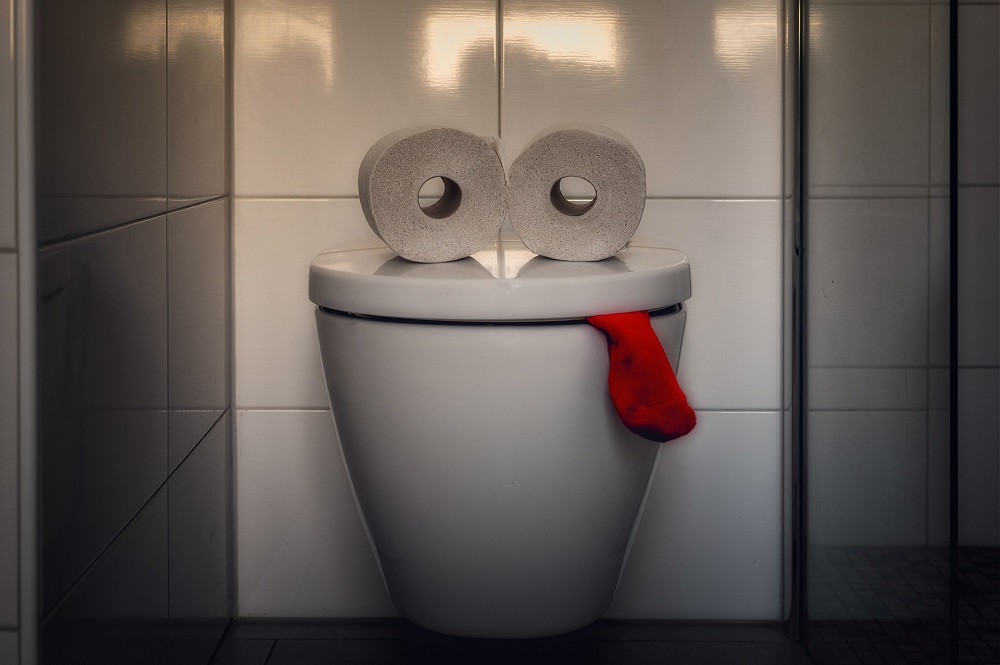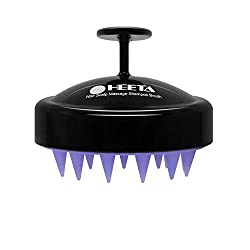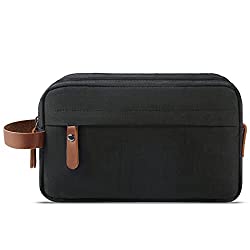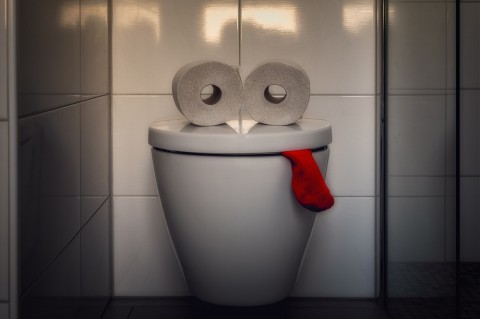The Esteemed Gentleman Articles
Men’s Hygiene Checklist: The Ultimate Guide
It's a fact that most men don't take hygiene as seriously as they should. Most men stand by the three S's, and that's as far as their bathroom routine goes. (Don't think there's a need for explanation there).
Your time spent in the bathroom getting ready for the day should be an enjoyable experience, not a slog. Each step in the men's daily hygiene checklist will leave you feeling invigorated, prepared, and ready to face the day and the challenges ahead.
While the list may seem daunting to some, know that not every step needs to be completed by everyone. Try them all and see what works for you. You may find that you already do one or more of these items, or you may discover you were doing one incorrectly. It's all about finding the right balance and method.
On with the list:
Shampoo Less, Condition More
Growing up, you may have been taught to shampoo and condition your hair every single day. While your parent or guardian may have had your best interests in mind, they probably didn't know that daily washing strips your hair of the natural oil (known as sebum) that your scalp creates to keep your hair healthy and hydrated.
It may sound counterintuitive, but shampooing every other day may be more beneficial for your hair. Shampoo removes dirt and debris from your hair, but it also strips it of its nutrients. Not shampooing every day gives your scalp time to restore its sebum, ultimately repairing your hair. Continually stripping your hair of sebum will leave it dry, weak, and more prone to split ends.
Conditioning is a different story. Conditioner adds hydration and nutrients to your hair, strengthening it. If you wash your body daily, you may condition your hair as well.
Avoid using 2-in-1 products. You may think you're being efficient by using twice the product with only one rinse, but rather, you are washing out the conditioner along with the shampoo and not getting the full effects of either. Instead, purchase quality shampoo and separate conditioner that contains extra vitamins and minerals that will leave your hair soft and moisturized.
Once a week, consider using a hair mask, which we describe in the next point:
Use A Hair Mask
This tip may sound foreign to some. What exactly is a hair mask? Think of a hair mask like a super-concentrated conditioner: it adds nutrients and hydration to your hair, reduces frizz, strengthens, and enhances shine. Most hair masks come in jars and appear similar to white hair pomade.
Unlike conditioner, once you apply it to your hair, you leave it in for an extended period of time to reap all its benefits. After rinsing out shampoo, work a generous amount from your ends to your scalp, massage it into your hair. You can use a wide-toothed comb to de-tangle your hair if you didn't de-tangle it after you shampooed.
Leaving hair mask in for even 5 minutes will yield results, but for best results keep it in your hair for a good half hour or even overnight (wearing a shower cap to bed so you don't make your pillow sticky). You do not need to apply conditioner to your hair if you are using a hair mask during the same shower. Applying a hair mask once a week will make your hair look more luscious than ever before.
Scalp Massage
If you have ever had your hair washed at a salon before getting it cut, chances are, the stylist gave you a scalp massage. Similar to a body massage, you melt away in the chair. A scalp massage invigorates the hair follicles all over your head, encouraging hair growth. Not only does it feel fantastic, in some studies it has also reduced the effects of hair loss.
If you want to give yourself a scalp massage, you can use your fingers or purchase a cheap massager tool off Amazon. In the shower, with wet hair, make gentle circles all over your head for 2-4 minutes. Whether you use conditioner is up to you.
Get A Haircut At Least Once Every 3 Months From A Trusted Barber
Unless you are planning on growing out your hair, schedule a haircut at least once every three months. A trim and tidy-up of split ends and cutting off the extra length will make your hair manageable again. An obvious reminder of a haircut is if you wake up and look like Oscar the Grouch or Kramer from Seinfeld.
How often you get your hair trimmed or cut depends on its current and desired length, thickness, and amount of curl. If you prefer to keep your hair short, get it cut more often. If you like having longer locks, go every 6 months or more.
Find a salon or stylist you trust and explain to them how you'd like your hair to look. Better yet, browse online and find some examples. Your stylist will be able to recommend the proper products and care for your hair so you can keep it looking amazing.
Invest In A Loofah Or Body Scrubber
Some men rub themselves down with bar soap and call it a day. Aside from a weak lather and maybe a fresh smell, it isn't very effective. Instead, invest in a loofah or body scrubber to remove the dead skin that may be clogging your pores and causing irritation in sensitive areas.
When using an exfoliant of any type, be gentle. Applying too much pressure may cause lesions that could become infected. If you experience any soreness or redness during or afterward, use an exfoliant every other day, and be extra gentle if you have sensitive skin.
Use Proper Soap For Your FaceNot all soaps are created the same. The skin on your face—especially around the eyes—is far more sensitive than the rest of your body. Using the same soap on your face that you use on your body could irritate your skin or dry it out. Instead, purchase a facial soap bar, foam, oil, or gel specifically fortified for facial cleaning only.
If you wish to use a soap bar, look for an unscented soap that includes moisturizer. Rub your hands on the bar then apply the suds to your face in a gentle circular motion starting from your nose and work outwards. Don't rub the bar directly on your face; you won't be able to reach every spot effectively.
Use A Facial Scrub Twice A Week
Dead skin cells pile up, pores get clogged, and our face becomes a magnet for dirt. Twice a week, you should give your face a good scrub with an exfoliant. A scrub will remove dead skin cells, unclog your pores, cleanse deeply, reduce the appearance of acne, and help keep your skin looking radiant and healthy.
Facial scrubs can be found alongside acne treatments or face washes in most department stores and pharmacies. They contain small bits of abrasive materials (usually micro-beads, sugar, salt, ground coffee beans, or even certain nuts) that rub against your skin, removing dead skin cells and cleaning out pores.
If you are on acne medication like Accutane, have sensitive skin, or are allergic to certain ingredients, consult a dermatologist or health care professional for guidance and advice.
Wear Sunscreen With SPF30 Or Above, And MoisturizerThroughout the day, your face will be exposed to the sun's UV rays. While feeling the warmth of the sun on your skin is enjoyable, too much of it can cause irreversible damage. Applying sunscreen with a minimum SPF rating of 30 will reduce the chances of sunburn and skin cancer.
Wearing a facial moisturizer alongside sunscreen will keep your skin hydrated and looking healthy. A good moisturizer will contain vitamins like Vitamin K, C, D, and E, which help your skin looking youthful and refreshed. If you find your skin becomes oily after applying moisturizer, consider using less or changing to a type designed for oily skin.
Can't decide which product to apply first? This article can help you pick out the right one.
Change Your Towel Every Few Days
It's not something we think about frequently. Once we are finished drying ourselves off, we hang the towel up (hopefully), then forget about it. Sometimes we forget about it and only take notice when the smell becomes unbearable. Even then, some may continue to use their towels. Not only is it beyond unsanitary, but the US Chemical Warfare division may be paying you a visit.
Some people believe that a towel never becomes dirty, since you are essentially clean when you use it. While you may feel rejuvenated and refreshed, there are still dirt and debris in the water on your body. Once you are finished with the towel and hang it up to dry, these molecules thrive and being to multiply. A damp towel is an ideal breeding ground for germs.
To prevent your bathroom from becoming a musty, stinky room, wash your towels after every second or third use. If you work out or have hobbies that make you stinky and sweaty, change your towels more often. The same applies if you have sensitive skin or wounds that may stain your towel.
Take Care Of Your Facial Hair
If you decide to rock the Lanny McDonald moustache, grow some peach fuzz for Movember, or become the next member of ZZ Top, you'll need to keep your facial hair looking great. A quick search online will reveal numerous products, serums, oils, and vitamins you could use to keep your facial hair looking healthy. The question is: which one is right for you?
Like most hair and skincare products, what works for one person may not be as effective for you. Speak to a dermatologist and see what they recommend for you and your desired facial hair. At minimum, invest in a good quality beard conditioner or oil, facial moisturizer, beard comb, small styling scissors, and a small vanity mirror.
Not everyone can grow a kick-ass beard, but for those who do, benefits include:
- Reducing the look of facial blemishes like acne and scars
- Reducing skin cancer and sunburn on your face
- Looking masculine, like you're a lumberjack or in a motorcycle gang
- Attracting potential partners who are interested in beards
Manscape
Although manscaping seems to be a buzzword now, humans have been trimming and shaving body hair for thousands of years. Even as early as 30,000 BCE, primitive humans realized the need to take care of their body hair and appearance. Needless to say, it was likely much more painful than it is in the current age of multi-blade and electric shavers.
Taking a few minutes once a week to trim unsightly hairs will make you feel refreshed. When you remove unwanted hair, you're also checking your body for bumps, lumps, marks, bruises, cuts, and any other unusual changes that may be concerning.
While body hair, or the lack thereof, on men seems to vary in popularity through the decades, tending to the hedges shouldn't be ignored. Not only will you feel and look better you'll also reap the following benefits:
- you look more attractive (showing off those muscles)
- it's more hygienic (no bacteria growing in hair forests)
- you sweat less (hair insulates your body; without it your body cools off faster)
- some women prefer clean-shaven men over Wookiees
Shaving (Change Cartridges Often)
At some point, you have most likely shaved with a dull blade. The pulling, yanking, and repeated passes are painful and frustrating. And no matter how many times you shave over the same spot, you can't get that one hair. You're left with razor burn and a rogue hair that just won't leave.
There really isn't an exact science to how often you should change your blade. A basic guideline is to change it every five to seven shaves. However, there is a caveat: if you have thicker hair or do a lot of shaving at once (like shaving an entire beard or ultra-manscaping) you'll have to change the blade sooner.
Some manual razors include a gel above the blades that changes colour when the blade needs replacing, but not all cartridge razors are like that. Once you notice your razor blade isn't performing as well as it used to, it's time to bin it.
Applying Deodorant/Antiperspirant
While some think deodorant and antiperspirant are the same, they aren't. Deodorant controls odours while antiperspirant blocks your sweat glands. Deodorants typically contain chemicals that make the immediate environment acidic and prevent odour-producing bacteria from multiplying, but do not eliminate sweat. Antiperspirants often contain aluminum that blocks your sweat glands. If you want to stop sweating as much, apply antiperspirant. If you want to eliminate bad underarm odours, wear deodorant. For best effect, wear both or find a product that contains both properties.
Applying one, or both, of these right after your shower will ensure you won't go the entire day with stinky sweaty underarms. If you find that you sweat more than others or require multiple applications throughout the day, consider carrying a travel-sized stick with you.
If you plan on wearing cologne, apply an underarm product that is scent-free. This will ensure that the scent of your cologne won't clash with the scent of your deodorant or antiperspirant.
Brush/Floss (And Change Your Toothbrush Every 2-3 Months)
Hopefully this isn't a new concept. Brushing at least twice a day and flossing daily has multiple proven oral health benefits. It should be a daily routine that is hardwired into you and done almost instinctively.
Brushing your teeth regularly is the most effective way to reduce the risk of oral issues including cavities, gum disease, plaque buildup, and gingivitis. Investing in a quality toothbrush, like an electric one with an oscillating head, will give you a deeper and more effective clean than a manual toothbrush.
For an effective brushing, divide your mouth into quadrants (bottom left, bottom right, top left, top right), and brush in a circular motion covering all parts of each tooth. Focus on each quadrant for 30 seconds. Some electric toothbrushes will vibrate a different pattern at 30 second intervals. After 2 minutes, give the roof of your mouth and tongue a brush as well.
Flossing is an effective way to remove plaque from those hard to reach places between your teeth that a toothbrush can't access. Adequately flossing (getting between every tooth and moving the floss from side to side and up and down) will dramatically reduce oral health risks such as gum disease. While some people say flossing is ineffective, it's better to do it out of precaution rather than to ignore it altogether.
Invest In A Quality Tongue Scraper
While most of us use our toothbrush to scrape our tongues, there is an effective (and cheap) tool we can add to our daily bathroom routine to ensure our tongue is cleaned effectively. Running a tongue scraper across your tongue 2-3 times after brushing and flossing will reduce bacteria on your tongue. This will help to curb bad breath and to prevent gum disease and cavities.
Use Mouthwash
For a final K.O. to bad breath, bacteria, and tooth decay, swish mouthwash for 30 seconds, making sure you cover all areas of your mouth. Afterward, spit it into the sink. Do not rinse your mouth out with water. If you have to spit out excess mouthwash, do it. Avoid swallowing any mouthwash, as it can be harmful to your body.
Most mouthwashes have deep caps that you can pour your mouthwash into. How much you use is up to you, but 3-5 teaspoons is typical. If you find that's too much, add a small amount of water to the mouthwash.
Keep Your Nails Trimmed
At the end of a long, tiring day, you may look at your nails and notice the amount of dirt under them. Dirty nails are a sign of a productive day, but they're brooding with bacteria and are an eyesore if you're going out later in the evening. What to do?
While we may not all desire a manicure, we should take care of our nails. Trimming them weekly or bi-weekly is a good start. Long nails are more prone to breaking and harbouring more dirt, which can increase your chances of getting sick. Filing your nails after cutting them will remove any sharp edges your cutters may have left.
Scissors or clippers? Most of us have nail clippers in our medicine cabinets, and this is the tried and true method for most of us. A sharp pair of clippers can make quick work cutting nails, but a dull pair can lead to broken and split nails. Sometimes the cut nail can fly off in random directions that may include right towards your face.
Nail scissors, on the other hand, are easier to control. Most are curved to fit the contour of your nails, making cutting easier and the chances of a kamikaze nail practically nonexistent.
What about toenails? Our toenails deserve some love, too. Tend to them as you would fingernails. During warmer months, wear thinner socks (or no socks, if you wish) with shoes that allow more air flow. A sweaty foot can lead to nasty bacterial and fungal infections that could ruin your summer adventures.
Wear A Signature Scent
A gentleman should have a signature scent he wears with pride, almost like an invisible suit of armour. The scent of a nice cologne is an instant mood booster to you and to others around you, if they like the scent. It can be a silent siren call to a potential mate, or it might bring back old memories of a close family member or friend who wore a similar fragrance.
Our article 9 Fantastic Reasons To Wear A Fragrance has more reasons on why you should invest in a signature scent.
If you want to begin wearing fragrances, read our guide on how to test fragrances before spending your hard-earned money on something you don't like. Some fragrances will lose their scent after a few hours and others may be overly strong.
Remember: When wearing a fragrance, you want to be discovered, not announced. A couple sprays on your neck should be more than enough for the day.
There are places where you should avoid wearing scented products. These include fragrance-free zones like offices, hospitals, and some seniors' homes. Some people may be allergic to certain ingredients while others may not be a fan of fragrances altogether. If you are going on a date or to a public place, you don't need to worry as much. But please don't douse yourself in half a bottle before going out.
Going on a first date? Be sure to read our article Does A Gentleman Kiss On The First Date? First Date Advice
Travel Tip: Have A Travel Bag At The Ready And Stocked With The Essentials
Life has a way of being unpredictable. There may be a time where you need to catch the next flight out of town or drive a long distance for a few days for work. In occasions such as these, it's advisable to have a small travel bag with hygienic essentials at the ready. Small toiletry organizer bags are inexpensive. Here is one we recommend.
Travel Sized Pickups
Next time you go to a department store or the local pharmacy, pick up travel-sized versions of these essentials:
- Toothbrush, toothpaste, floss, and mouthwash
- Razor, extra blades, and shaving cream
- Deodorant or antiperspirant
- Shampoo and conditioner
- Soap and/or body wash
- Hair gel or pomade
- A comb or brush
- Hand lotion
- BONUS: Advil or Tylenol, Band-Aids, and lip moisturizer
Summary
Hygiene doesn't have to be a list of boring tasks. It's good to take care of all the details, no matter how small they may seem. View each step like adding another piece of armour to yourself for that day. You're protecting your mouth, hair, and the rest of your body by practicing proper hygiene. Once you're done, you'll be well suited and ready to take on the day!
Did you enjoy this article? Learn something new? Share it with a friend and follow Esteemed Gentleman on social media to stay up to date with new articles and posts!
Links:
Don't forget to sign up below to stay up to date on new articles and reviews we publish!
When you subscribe to the article, we will send you an e-mail when there are new updates on the site so you wouldn't miss them.









Comments